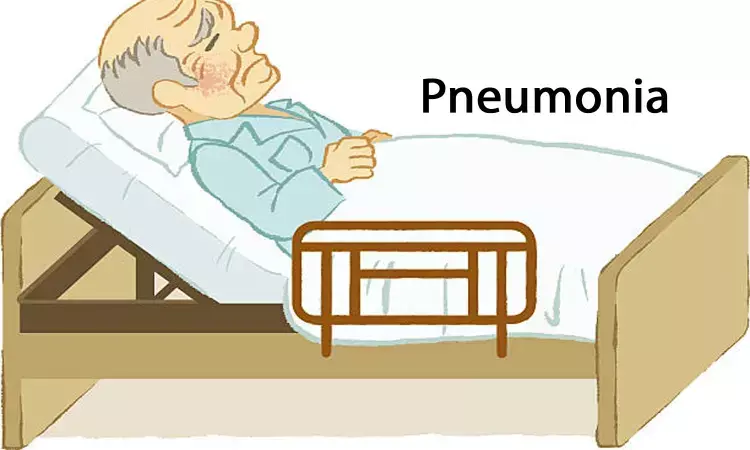- Home
- Medical news & Guidelines
- Anesthesiology
- Cardiology and CTVS
- Critical Care
- Dentistry
- Dermatology
- Diabetes and Endocrinology
- ENT
- Gastroenterology
- Medicine
- Nephrology
- Neurology
- Obstretics-Gynaecology
- Oncology
- Ophthalmology
- Orthopaedics
- Pediatrics-Neonatology
- Psychiatry
- Pulmonology
- Radiology
- Surgery
- Urology
- Laboratory Medicine
- Diet
- Nursing
- Paramedical
- Physiotherapy
- Health news
- Fact Check
- Bone Health Fact Check
- Brain Health Fact Check
- Cancer Related Fact Check
- Child Care Fact Check
- Dental and oral health fact check
- Diabetes and metabolic health fact check
- Diet and Nutrition Fact Check
- Eye and ENT Care Fact Check
- Fitness fact check
- Gut health fact check
- Heart health fact check
- Kidney health fact check
- Medical education fact check
- Men's health fact check
- Respiratory fact check
- Skin and hair care fact check
- Vaccine and Immunization fact check
- Women's health fact check
- AYUSH
- State News
- Andaman and Nicobar Islands
- Andhra Pradesh
- Arunachal Pradesh
- Assam
- Bihar
- Chandigarh
- Chattisgarh
- Dadra and Nagar Haveli
- Daman and Diu
- Delhi
- Goa
- Gujarat
- Haryana
- Himachal Pradesh
- Jammu & Kashmir
- Jharkhand
- Karnataka
- Kerala
- Ladakh
- Lakshadweep
- Madhya Pradesh
- Maharashtra
- Manipur
- Meghalaya
- Mizoram
- Nagaland
- Odisha
- Puducherry
- Punjab
- Rajasthan
- Sikkim
- Tamil Nadu
- Telangana
- Tripura
- Uttar Pradesh
- Uttrakhand
- West Bengal
- Medical Education
- Industry
Osteoporosis medicines may lower pneumonia risk, finds study

A recent study has revealed that osteoporosis treatment may also protect against pneumonia.
The nitrogen containing bisphosphonates (N-BPs) such as alendronate widely used to treat postmenopausal osteoporosis, are linked with lower risks of pneumonia and of dying from pneumonia. The results are published in the Journal of Bone and Mineral Research.
The Researchers conducted a study to evaluate the risk of pneumonia and pneumonia mortality among patients receiving nitrogen‐containing bisphosphonates (N‐BPs), non‐N‐BP anti‐osteoporosis medications, and no anti‐osteoporosis medications after hip fracture.
When N‐BPs were compared with non‐N‐BP anti‐osteoporosis medications, the association remained significant. N‐BPs were associated with lower risks of pneumonia and pneumonia mortality. Randomized controlled trials are now required to determine whether N‐BPs, non–vaccine‐based medications, can reduce pneumonia incidence in high risk groups.
They studied a historical cohort using a population‐wide database. Patients with first hip fracture during 2005–2015 were identified and matched by time‐dependent propensity score. The cohort was followed until December 31, 2016, to capture any pneumonia and pneumonia mortality.
The study included 4,041 patients with hip fractures who received N-BPs and 11,802 who did not. Over a median follow-up time of 2.7 years, N-BPs were associated with a 24% lower risk of pneumonia compared with no treatment (69 versus 90 cases per 1,000 people per year).
A similar association was observed with pneumonia mortality, with a 35% lower risk associated with N-BPs (23 versus 35 per 1,000 patients per year for the N-BP and non-N-BP groups, respectively).
Results from previous animal studies indicate that N-BP treatment leads to a high concentration of N-BPs in the respiratory tract. "Together with its anti-inflammatory and immune-modulatory properties, this may explain why N-BPs were associated with reduced risk of pneumonia, as revealed in our study," said senior author Ching-Lung Cheung, PhD, of The University of Hong Kong. He added that studying the potential of N-BPs for treating symptoms of COVID-19 may be warranted.
For further reference log on to:
Dr Kamal Kant Kohli-MBBS, DTCD- a chest specialist with more than 30 years of practice and a flair for writing clinical articles, Dr Kamal Kant Kohli joined Medical Dialogues as a Chief Editor of Medical News. Besides writing articles, as an editor, he proofreads and verifies all the medical content published on Medical Dialogues including those coming from journals, studies,medical conferences,guidelines etc. Email: drkohli@medicaldialogues.in. Contact no. 011-43720751


